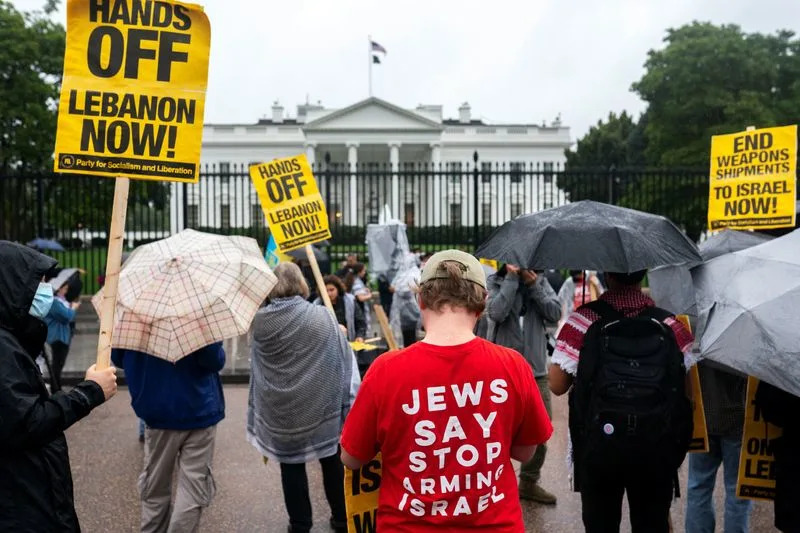Trump says women won’t be ‘thinking about abortion’ if he’s elected, casting himself as their ‘protector’
Kate Sullivan and Eric Bradner, CNN
Tue, September 24, 2024

Jim Watson/AFP/Getty Images
Former President Donald Trump cast himself as a “protector” of women at a Pennslyvania rally Monday evening and claimed that American women won’t be “thinking about abortion” if he’s elected.
The plea to ignore Trump’s own role in undoing national abortion rights protections is a clear signal that the former president is keenly aware of what polls show: His Democratic rival, Vice President Kamala Harris, has a clear advantage among women voters, nationally and in key swing states. Trump has kept the race close by countering with a lead among men.
Harris’ edge with women is driven in part by the Supreme Court’s conservative majority, with three members appointed by Trump, in 2022 overturning Roe v. Wade and leading to a patchwork of state-level abortion regulations — including restrictive laws in several of the battleground states that could decide the 2024 election. Democrats have performed strongly in elections where abortion has taken center stage since that 2022 Supreme Court decision, and abortion rights supporters have won a series of statewide referendums on the issue, even in deep-red states.
“I always thought women liked me. I never thought I had a problem. But the fake news keeps saying women don’t like me,” Trump said in Indiana, Pennsylvania. “I don’t believe it.”
The former president claimed women are “less safe,” “much poorer” and are “less healthy” now compared to when he was president and vowed to end what he described as their “national nightmare.”
“Because I am your protector. I want to be your protector. As president, I have to be your protector. I hope you don’t make too much of it. I hope the fake news doesn’t go, ‘Oh he wants to be their protector.’ Well, I am. As president, I have to be your protector,” Trump said.
Women, he added, “will be happy, healthy, confident and free. You will no longer be thinking about abortion.”
Polls also show likely voters give Harris the edge on handling abortion. Polls also show likely voters give Harris the edge on handling abortion. A CNN poll conducted by SSRS released Tuesday found likely voters nationally favor Harris’ approach to abortion (52%) to Trump’s (31%). That advantage was in line with several other national surveys released this month.
Even in polls that indicate Trump has a lead — such as a New York Times/Siena College poll of Arizona likely voters released Monday, which found Trump leading with 48% support to Harris’ 43% — it’s clear Trump faces political headwinds on the issue of abortion rights. A broad majority (58%) of voters said they would vote to back a ballot measure seeking to establish a right to abortion in the state, while 35% oppose it.
Americans remain broadly opposed to the Supreme Court’s decision to overturn Roe, according to CNN polling, and it has proven to be thorny campaign issue for Republicans in down-ballot races.
Bernie Moreno, the GOP candidate for US Senate in Ohio, said at a town hall Friday that abortion is the only issue many suburban women vote on, and questioned why women over 50 would care about the issue, according to video obtained by WCMH-TV in Columbus, Ohio.
A spokesperson for Moreno later sought to call his remarks “a tongue-in-cheek joke,” though his opponent, incumbent Sen. Sherrod Brown, has already seized on the comments.
Trump appeared to be referring to Democrats later in his speech Monday when he said, “all they can talk about is abortion.”
“The country is falling apart. We’re going to end up in World War III, and all they can talk about is abortion. That’s all they talk about, and it really no longer pertains, because we’ve done something on abortion that nobody thought was possible,” he said in reference to the Supreme Court’s 2022 decision.
Trump had previewed his Monday evening appeal to female women voters with a post on his Truth Social platform last week. American women, he wrote in all-caps, “are more depressed and unhappy than they were four years ago” before vowing to “fix all of that.”
Harris, in a Wisconsin Public Radio interview on Tuesday, reiterated her support for eliminating the Senate’s 60-vote filibuster threshold to restore Roe v. Wade to codify abortion rights and protect women’s reproductive freedom.
“I think we should eliminate the filibuster for Roe,” Harris said.
Doing so, she said, would “get us to the point where 51 votes would be what we need to actually put back into law the protections for reproductive freedom and for the ability of every person, every woman to make decisions about their own body and not have their government tell them what to do.”
CNN’s Ebony Davis and Jenn Agiesta contributed to this report.


















